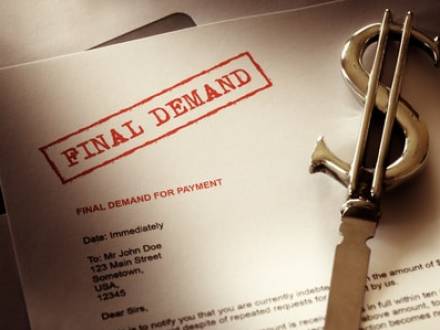How a Business Owner Files for Personal Bankruptcy in Maryland
 Far from making you immune to financial struggles, owning a small business can result in mounting debts that spill over into your personal life. If you have signed personal guarantees or mixed business and personal finances, the likelihood of this occurring increases significantly. If you are overwhelmed by credit card debt, medical debt, or business-related liabilities, you could potentially find relief by filing for personal bankruptcy.
Far from making you immune to financial struggles, owning a small business can result in mounting debts that spill over into your personal life. If you have signed personal guarantees or mixed business and personal finances, the likelihood of this occurring increases significantly. If you are overwhelmed by credit card debt, medical debt, or business-related liabilities, you could potentially find relief by filing for personal bankruptcy.
The process can be complex when you are trying to keep your business afloat. If you are a Maryland business owner, it is essential that you have accurate information in order to make a smart decision regarding filing for personal bankruptcy without risking everything you have worked for. Now is the time to speak to a knowledgeable College Park, MD bankruptcy attorney.
What is the Difference Between Personal and Business Bankruptcy?
Personal bankruptcy provides individuals with a fresh financial start by either discharging or reorganizing their debts. Personal bankruptcy involves personal assets, and state-specific exemptions determine which assets are protected from creditors. Individuals file under Chapter 7 (liquidation) or Chapter 13 (repayment plan).
Business bankruptcy focuses on reorganizing or liquidating a company's debt structure while potentially keeping the business operational. The addressed debts can include any business debts, such as loans, leases, and contracts. If a business is a sole proprietorship, the owner’s assets may be at risk. While individuals must pass a means test to qualify for Chapter 7 or Chapter 13 bankruptcy, businesses usually do not.
When Does Personal Liability and Business Debt Overlap?
While corporations and LLCs are specifically designed to separate personal liability from business debt, general partnerships and sole proprietorships have less distinction between personal and business finances. This can result in an individual being forced to assume unlimited liability, exposing their personal assets to business debts and lawsuits. When a small business owner neglects to pay business taxes, personal liability can result. Some small business owners will pledge personal assets as collateral for a business loan, making them personally liable for that debt.
How Does a Business Owner File for Personal Bankruptcy?
A business owner filing for personal bankruptcy will typically file under Chapter 7 or Chapter 13, depending on the specific circumstances. When sole proprietors, who are not separate legal entities from their businesses, file for personal bankruptcy under Chapter 7 or Chapter 13, the business debts are also addressed. Since Chapter 7 bankruptcy involves the liquidation of assets to pay off debts, both personal and business assets can be affected.
Chapter 13 bankruptcy allows for a repayment plan over three to five years, which can potentially allow the business to continue operating during that time. Sole proprietorship business owners file under their own names, using the forms designed for individuals rather than business forms. The bankruptcy filing includes personal and business assets, including inventory, equipment, and accounts receivable. While those filing chapter 7 bankruptcy typically need to pass a means test, those with more business debt than personal debt may be exempt from this requirement.
Can Maryland Business Assets Be Protected When Filing Chapter 7 Personal Bankruptcy?
In a sole proprietorship, the business and the owner are legally considered the same entity, meaning that business assets, including equipment, inventory, and even bank accounts, are considered part of the individual’s bankruptcy estate and can be seized and sold to pay debts. Maryland’s bankruptcy exemptions include:
- The homestead exemption protects up to $25,150 of equity in the primary residence.
- Personal property has a $1,000 exemption and includes household goods, furniture, clothing, appliances, and other personal belongings.
- Tools of the trade include equipment necessary for your profession and have a $5,000 exemption.
- The $6,000 wildcard exemption protects any property not covered by other exemptions.
Contact a Prince George’s County, MD Bankruptcy Attorney
If you are the sole proprietor of your business and want to file for personal bankruptcy, it is advisable to speak to a Greenbelt, MD bankruptcy lawyer from The Law Office of Donald L. Bell. Attorney Bell is a highly experienced, hands-on bankruptcy attorney with more than 20 years of experience. Call 301-614-0535 to schedule your initial consultation.






